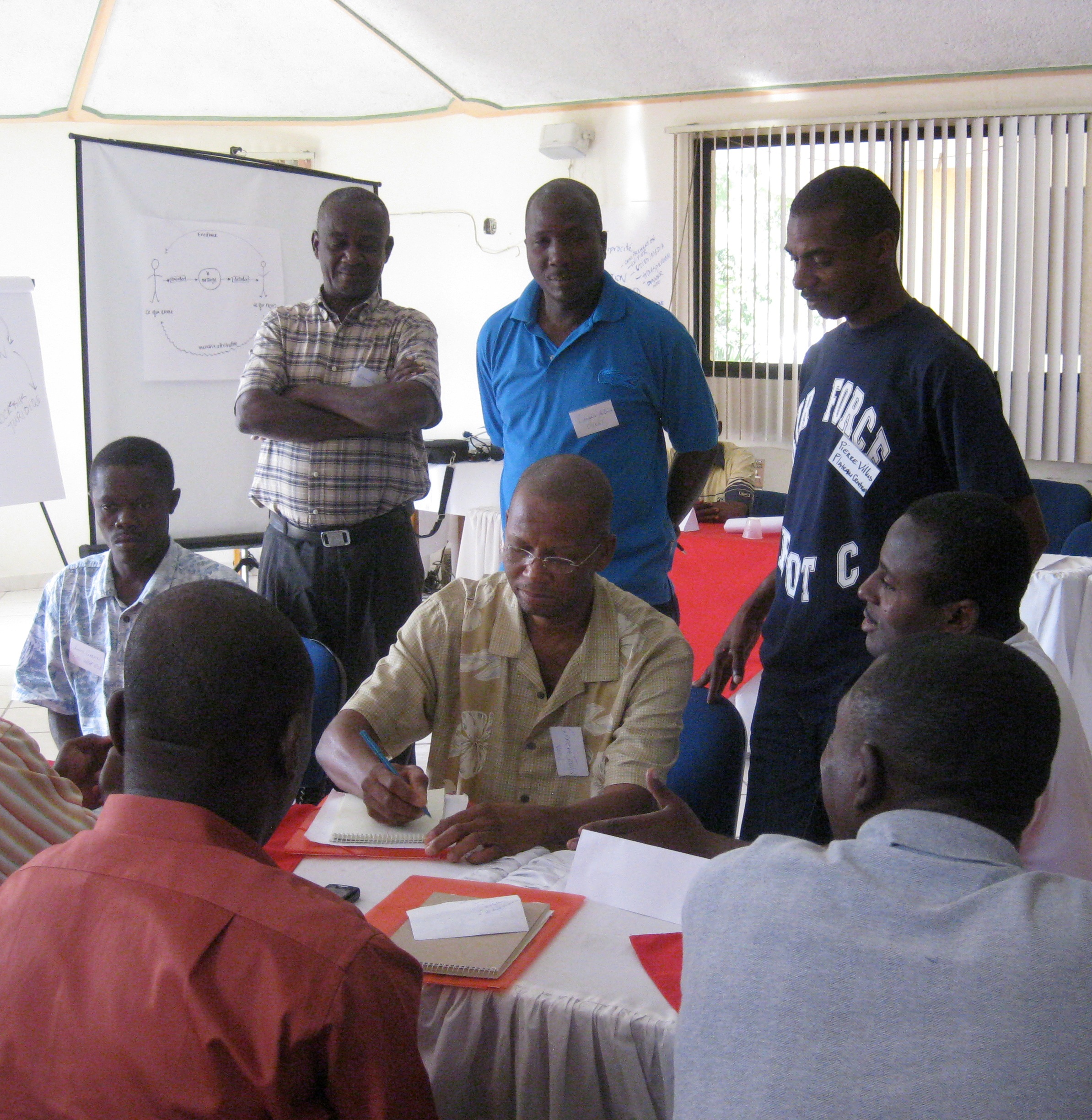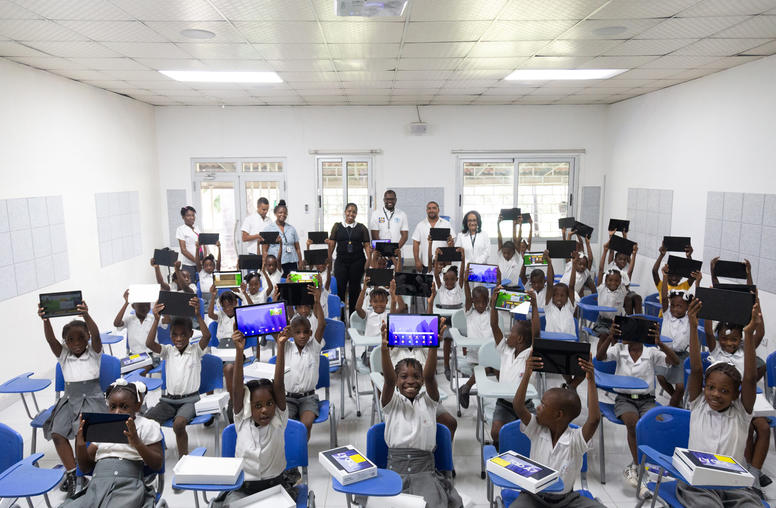Since 2010, USIP has conducted a series of conflict resolution trainings in Haiti for Haitian civil society activists.
Overview
Since 2010, USIP’s Haiti Program and the National Democratic Institute (NDI) have partnered to help prevent violence and mediate conflict through dialogue in Haiti. USIP has provided conflict resolution training to Haitian activists in NDI’s civil society network through three workshops, including a three-day session in July 2011.
Previous conflict resolution workshops in September 2010 and February 2011 focused on election-related violence. One graduate of the program organized a non-violence promotion campaign in his community, the election "hot spot" of Guaname. His campaign culminated in a 110-person meeting that brought together local police with representatives from the local government, civil society, clergy, and U.N. Stabilization Mission in Haiti (MINUSTAH). When election day came, Gauname reported little to no electoral violence.
July 2011 Workshop
On July 25-27, 2011, USIP conducted a follow-on workshop in Mirebalais, in Haiti's Centre Department. This workshop built on the previous two workshops by providing a more intensive training in the skills and strategies for constructively resolving local conflicts. The participants decided to establish a country-wide organization to unite their disparate community action groups.
In expressing appreciation for the training, one participant from Northeast Haiti said, "In the name of the whole group, I want to thank USIP for the great service you have done for Haiti. Our country has a huge need for this type of training. Everyone knows how many conflicts we are facing. We would like to ask USIP for continued workshops on civil resistance and to help us put mediation centers in each Department to promote additional efforts in conflict resolution."
Watch as another participant reflects on the workshop:



